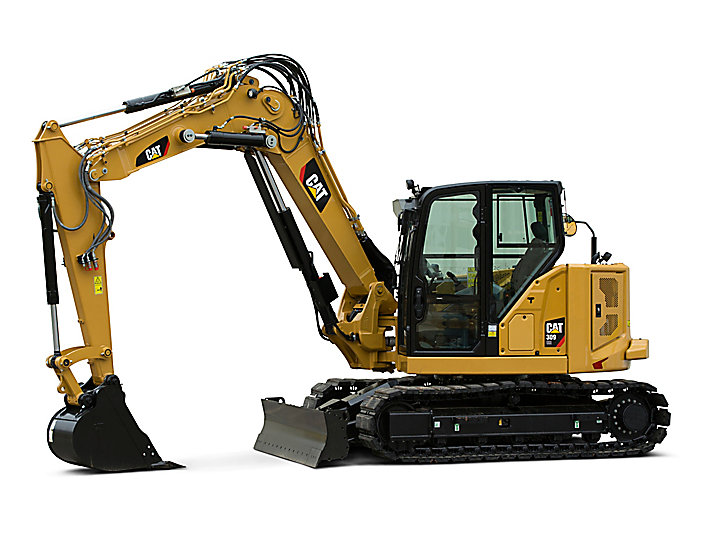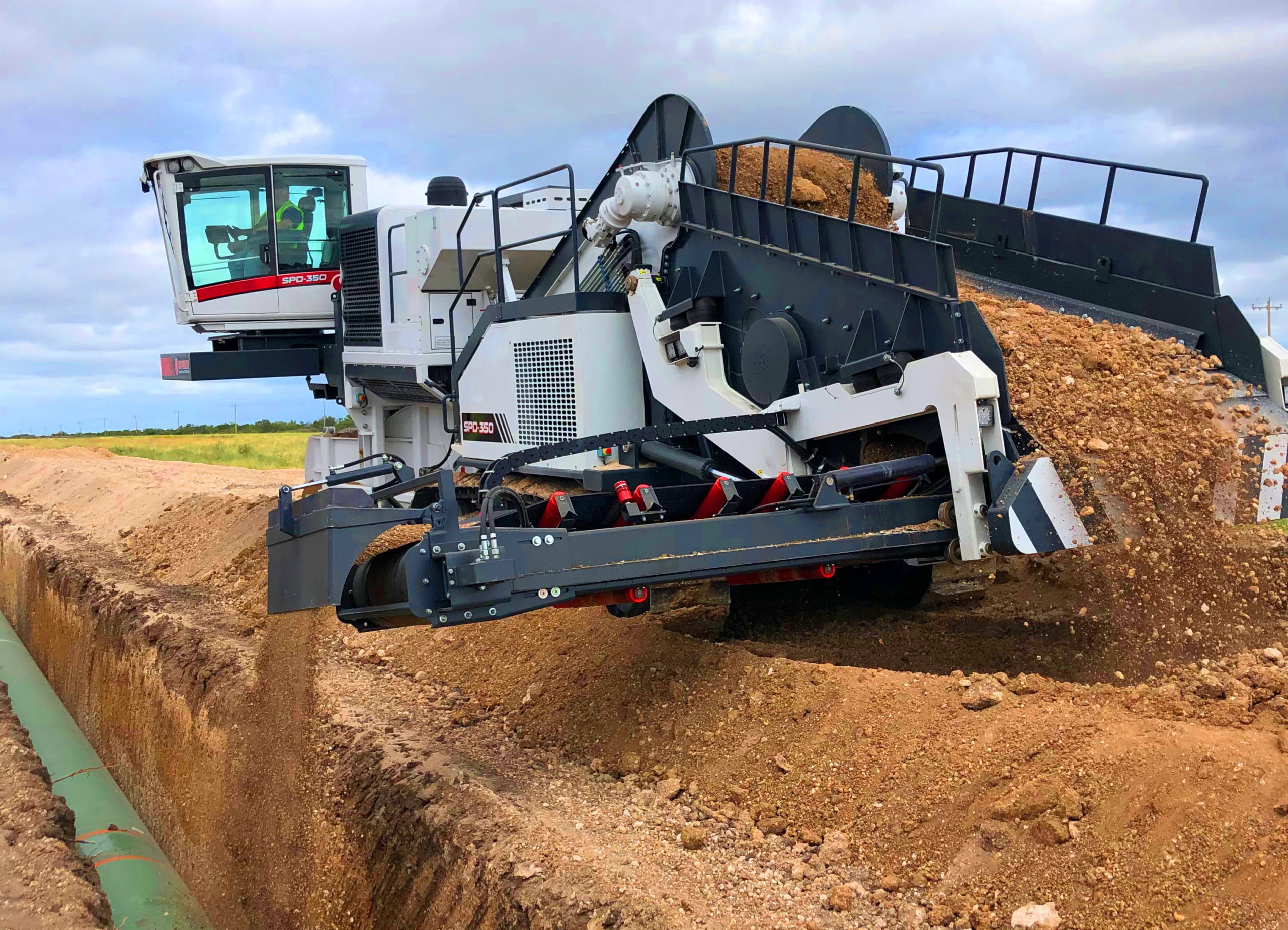Superior Rentals fusion machines: maintenance tips every engineer should know
Wiki Article
A Comprehensive Guide to the Different Kinds Of Oil Field Equipment and Pipeline Equipment Available
The oil and gas market counts heavily on specific equipment for effective removal and transport. Various kinds of equipment, from drilling rigs to storage containers, play vital functions in this intricate process. Each item of devices offers distinct features that contribute to general functional success. Understanding these components is crucial for anyone associated with the sector. As the sector evolves, so as well do the technologies that support it. What innovations are on the horizon?
Drilling Rigs: The Foundation of Oil Exploration
Drilling rigs function as the vital machinery in the domain name of oil exploration, enabling firms to accessibility hydrocarbon gets buried deep underneath the Planet's surface. These rigs can be found in different types, consisting of land rigs, offshore rigs, and mobile units, each created to operate in details atmospheres. Equipped with sophisticated technology, piercing rigs can permeate geological developments with precision, ensuring reliable resource removal. The structural honesty and operational capacities of these rigs are important, as they should hold up against extreme problems and considerable stress. Furthermore, the choice of an exploration gear impacts the overall task cost and timeline, making it a vital consideration for oil business looking for to enhance their exploration efforts and make best use of efficiency in their operations.Pumps: Vital for Fluid Activity
In the oil removal procedure, the duty of pumps is significant, assisting in the motion of liquids throughout numerous phases of production. Pumps are important for moving petroleum, water, and various other fluids from below ground storage tanks to the surface area and then through pipelines to refineries. They are available in different kinds, consisting of centrifugal, favorable variation, and completely submersible pumps, each offering specific purposes based upon the liquid features and functional needs. Centrifugal pumps are typically used for their efficiency in high-flow applications, while positive displacement pumps excel in handling viscous liquids. The selection of pump influences overall effectiveness, functional safety and security, and upkeep prices. Proper choice and upkeep of pumps are crucial for enhancing production and decreasing downtime in oil area procedures.Shutoffs: Managing Flow and Pressure

Valves play a vital function in managing the circulation and pressure of liquids within oil areas and pipes. Numerous kinds of valves offer distinctive applications, each created to satisfy details functions fundamental for efficient procedure - Superior Rentals Contact. Recognizing the characteristics and uses these valves is important for optimizing system performance and safety and security
Kinds of Valves
Necessary parts in oil field procedures, shutoffs play an important function in controlling the flow and pressure of liquids within pipes and tools. Various sorts of valves are used to meet the varied needs of oil and gas manufacturing. Typical types include gate valves, which offer a straight-line flow and marginal stress decrease; world valves, understood for their throttling capacities; and round valves, recognized for their fast on/off control. Additionally, check valves stop backflow, while butterfly valves offer a lightweight remedy for managing flow. Each valve type is designed with details materials and configurations to withstand the severe problems commonly found in oil areas, guaranteeing integrity and performance in operations. Understanding these kinds is vital for reliable system administration.Valve Applications and Functions
While different types of valves serve unique functions, their main applications rotate around managing flow and pressure within oil and gas systems. Shutoffs such as gateway, globe, and sphere valves regulate liquid movement, making certain peak efficiency and security. Gate shutoffs are generally used for on/off control, offering minimal circulation resistance. Globe shutoffs, on the other hand, deal accurate circulation guideline, making them appropriate for strangling applications. Sphere valves are preferred for their quick procedure and tight securing abilities. On top of that, stress relief shutoffs are essential for stopping system overpressure, protecting tools stability. Overall, the ideal choice and application of valves improve operational effectiveness, guaranteeing the reliable transportation of oil and gas through pipes and handling facilities.Compressors: Enhancing Gas Transportation
Compressors play a critical function in the reliable transportation of gas, making certain that it moves efficiently through pipes over cross countries. These devices raise the pressure of gas, enabling it to get over friction and altitude changes within the pipeline system. In addition, compressors assist in the balancing of supply and need, suiting changes in intake and production prices. Numerous types of compressors are used in the market, consisting of centrifugal, reciprocating, and rotary screw compressors, each offering distinctive advantages based on the operational demands. Normal maintenance of these compressors is necessary to make the most of effectiveness and decrease downtime, eventually adding to a trustworthy gas transport network. Their essential feature emphasizes the value of compressors in the overall oil and gas framework.Storage Tanks: Safe and Reliable Liquid Management
Effective transport of gas depends on numerous sustaining systems, among which is the correct monitoring of storage space containers. These tanks play an important function in safely including fluids, guaranteeing that operational efficiency is maintained while minimizing ecological threats. Created from long lasting products, they are created to stand up to high pressures and corrosive elements. Properly sized and purposefully situated, tank facilitate the smooth circulation of gas and other fluids, preventing traffic jams in supply chains. Normal upkeep and tracking are necessary to find leaks or structural issues, advertising safety and security and compliance with regulatory criteria. Inevitably, the efficient management of tank is critical for the total stability and reliability of the oil and gas sector's liquid handling systems.
Pipeline Systems: Infrastructure for Transport
Pipeline systems act as the foundation of the oil and gas market, helping with the reliable transport of hydrocarbons over large distances. These systems are composed of different elements, consisting of pipes, shutoffs, pumps, and compressors, all thoroughly created to guarantee smooth flow. The products utilized in pipeline construction, commonly steel or high-density polyethylene, are chosen for toughness and resistance to corrosion. Pipeline networks can cover across land and water, attaching production websites to refineries and distribution. In addition, progressed technology allows real-time monitoring of flow prices and stress levels, improving functional efficiency. The calculated positioning of these pipelines lessens ecological influence while maximizing resource access, thereby playing a vital duty in conference energy demands internationally.Safety And Security Equipment: Guaranteeing Employee and Environmental Management
The operation of pipeline systems, while vital for power transport, additionally presents considerable security obstacles for workers and the environment. Security tools plays a substantial duty in reducing these dangers. Individual safety equipment (PPE) such as safety helmets, handwear covers, and non-slip shoes safeguards workers from physical hazards. Additionally, gas detection systems monitor for leaks, making sure that harmful substances do not position a risk to employees or the bordering ecosystem. Emergency shutdown systems are vital for swiftly stopping procedures throughout a crisis, avoiding prospective catastrophes. Spill control materials, including absorbents and barriers, are fundamental for reducing environmental impact. In general, investing in all-inclusive safety equipment is critical for maintaining functional integrity and protecting both workers and the environment in the oil and gas field.
Frequently Asked Concerns
How Do I Pick the Right Oil Field Equipment for My Project?
Selecting the right oil area equipment involves examining project specs, spending plan restraints, and operational demands. Take into consideration factors such as equipment dependability, compatibility with existing systems, and the vendor's online reputation to guarantee peak performance and security.What Are the Upkeep Needs for Oil Field Equipment?
Upkeep needs for oil area tools consist of regular inspections, lubrication, and timely repair work. Operators must likewise stick to supplier standards, display efficiency metrics, and warranty conformity with safety and security laws to boost longevity and efficiency.
Exactly How Can I Ensure Conformity With Environmental Regulations?
To assure compliance with ecological policies, firms need to conduct normal audits, execute best methods, purchase training, preserve proper paperwork, and remain updated on regulation (Superior Oilfield Rentals). Partnership Superior Rentals near me with ecological agencies can additionally boost adherence to lawsWhat Is the Ordinary Life Expectancy of Pipeline Equipment?
The ordinary lifespan of pipeline tools generally varies from 20 to half a century, depending on aspects such as worldly top quality, environmental conditions, and maintenance methods. Normal inspections can significantly affect long life and functional performance.How Do I Safely Carry Oil Field Equipment to Remote Locations?
Moving oil area equipment to remote locations requires careful planning, including path evaluation, safeguarding authorizations, making use of ideal vehicles, and ensuring security procedures are complied with. Appropriate training and communication among teams are necessary for effective transport.Report this wiki page